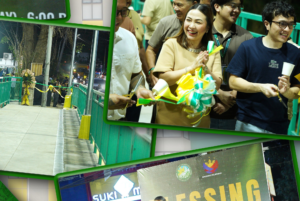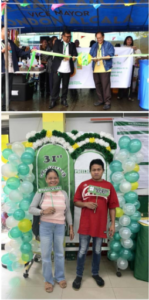
CALAMBA CITY (PIA) — Young voters remain a key force in shaping grassroots leadership and barangay governance, a professor from De La Salle University-Dasmariñas (DLSU-D) has emphasized.
In an interview with the Philippine Information Agency, Dr. Rommel Mazo, director of the DLSU-D’s School of Governance, Public Service & Corporate Leadership, highlighted the role of the Sangguniang Barangay and Sangguniang Kabataan in promoting participatory governance and training future tech-savvy leaders.
“In itself, the youth is a political force and they should actively participate in public governance and political decision-making processes. Their voices should be heard, especially during the time of AI (artificial intelligence) and Information and Communications Technology (ICT), because their access to this information affords them the insights only they could have.”
As the youth’s first foray to participative governance and policymaking, the Sangguniang Kabataan provides a platform for translating national policies and goals affecting grassroots communities into local legislature.
“The Sangguniang Kabataan will create the ordinances that will implement government policies and the goals set by the UN [United Nations]. These goals must be translated into laws and ordinances, and implemented in the barangay.”
Formalized under the Sangguniang Kabataan Reform Act of 2015, the Sangguniang Kabataan acts as the highest policymaking body on matters affecting the youth in the barangay wherein all its programs, plans and activities are decided with the consent of representatives, known as the Katipunan ng Kabataan.
To achieve this, Mazo emphasized the importance of providing a platform for the youth to give their collective opinions and perspectives, especially on policies that will affect their community.
“The stability of our republic relies on the stability of our barangays, so we expect our officials to be competent and honest. Our expectations from our barangays should be the same as what we expect from our national government.”
Describing it as the ‘repository of knowledge’, Mazo noted the academe’s role in promoting sustainable governance, where policies and programs by the government are anchored from the United Nations Sustainable Development Goals.
It serves as the global blueprint to achieving a balance between economic growth, social inclusion, and environmental protection by addressing critical global challenges such as poverty, inequality, climate change, environmental degradation, peace, and justice.
In its 2024 Philippine Statistical Yearbook, the Philippine Statistics Authority (PSA) noted that the CALABARZON is home to some 4,420,311 Filipinos aged between 15 to 29 years who are qualified to vote for the Sangguniang Kabataan. (PB/PIA4A)





